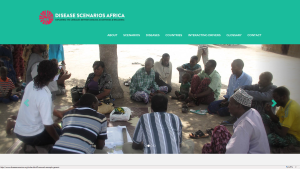 A new website from the STEPS-led Dynamic Drivers of Disease in Africa Consortium illustrates how scenarios modelling can provide a new and vital new tool in the global health community’s toolkit. The site, at www.diseasescenarios.org, explores how this multidisciplinary approach can help shed light on the complex processes at play in determining disease risk – and so preparing for the risk of zoonotic surprise.
A new website from the STEPS-led Dynamic Drivers of Disease in Africa Consortium illustrates how scenarios modelling can provide a new and vital new tool in the global health community’s toolkit. The site, at www.diseasescenarios.org, explores how this multidisciplinary approach can help shed light on the complex processes at play in determining disease risk – and so preparing for the risk of zoonotic surprise.
Writing about the approach in a blog for Lancet Global Health, Victor Galaz, of the Stockholm Resilience Centre, who led the work, says: “Sophisticated macro-models will, and should, continue to play an important role in the global health community’s attempts to explore future zoonotic disease risks. However, understanding Anthropocene disease risks will require more than large datasets, statistical ingenuity and massive computing power.
“It will also require abilities to combine multiple knowledge systems, multidisciplinary innovation, and well-developed communication skills. Scenario approaches of all kinds need to become one of the most important tools in the global health community’s toolkit as we move into a turbulent future.”
Read Victor Galaz’s blog on the Lancet Global Health website.
Listen to a short interview with Victor Galaz about the scenarios project.
Keep updated with the work of the Dynamic Drivers of Disease in Africa by joining its mailing list.